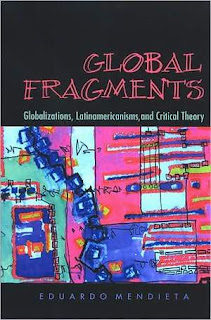John Sulston, Georgina Ferry: The Common Thread: A Story of Science, Politics, Ethics, and the Human Genome (2002)
Filed under book | Tags: · commons, ethics, genetics, genome, genome mapping, public domain

The world was agog when scientists made the astounding announcement that they had successfully sequenced the human genome. Few contributed so directly to this feat as John Sulston. This is his personal account of one of the largest international scientific operations ever undertaken.
It was a momentous occasion when British scientist John Sulston embarked on the greatest scientific endeavor of our times: the sequencing of the Human Genome. In The Common Thread, Sulston takes us behind the scenes for an in-depth look at the controversial story behind the headlines. The accomplishments and the setbacks along with the politics, personalities, and ethics that shaped the research are frankly explored by a central figure key to the project.
From the beginning, Sulston fervently proclaimed his belief in the free and open exchange of the scientific information that would emerge from the project. Guided by these principles, The Human Genome Project was structured so that all the findings were public, encouraging an unparalleled international collaboration among scientists and researchers.
Then, in May 1998, Craig Venter announced that he was quitting the Human Genome Project with plans to head up a commercial venture launched to bring out the complete sequence three years hence, but marketed in a proprietary database. Venter s intentions, clearly anathema to Sulston and the global network of scientists working on the Project, marked the beginning of a dramatic struggle to keep the human genome in the public domain.
More than the story of human health versus corporate wealth, this is an exploration of the very nature of a scientific quest for discovery. Infused with Sulston s own enthusiasm and excitement, the tale unfolds to reveal the scientists who painstakingly turn the key that will unlock the riddle of the human genome. We are privy to the joy and exuberance of success as well as the stark disappointments posed by inevitable failures. It is truly a wild and wonderful ride.
The Common Thread is at once a compelling history and an impassioned call for ethical responsibility in scientific research. As the boundaries between science and big business increasingly blur, and researchers race to patent medical discoveries, the international community needs to find a common protocol for the protection of the wider human interest. This extraordinary enterprise is a glimpse of our shared human heritage, offering hope for future research and a fresh outlook on our understanding of ourselves.
Publisher Joseph Henry Press, 2002
ISBN 0309084091, 9780309084093
Length 310 pages
More info (publisher)
More info (google books)
Eduardo Mendieta: Global Fragments: Globalizations, Latinamericanisms, and Critical Theory (2007)
Filed under book | Tags: · critical theory, critique, ethics, globalisation, latin america, modernity, philosophy, postmodern, religion

Global Fragments offers an innovative analysis of globalization that aims to circumvent the sterile dichotomies that either praise or demonize globalization. Eduardo Mendieta applies an interdisciplinary approach to one of the most fundamental experiences of globalization: the mega-urbanization of humanity. The claim that globalization unsettles our epistemic maps of the world is tested against a study of Latin America. Mendieta also recontextualizes the work of three major theorists of globalization—Enrique Dussel, Cornel West, and Jürgen Habermas—to show how their thinking reflects engagement with central problems of globalization and, conversely, how globalization itself is exemplified through the reception of their work. Beyond the epistemic hubris of social theories that seek to accept or reject a globalized world, Mendieta calls for a dialogic cosmopolitanism that departs from the mutuality of teaching and learning in a world that is global but not totalized.
Publisher SUNY Press, 2007
ISBN 0791472574, 9780791472576
Length 226 pages
More info (publisher)
More info (google books)
Luc Boltanski: Distant Suffering. Morality, Media and Politics (1993/1999)
Filed under book | Tags: · aesthetics, ethics, humanitarianism, mass media, media, moral theory

“Distant Suffering examines the moral and political implications for a spectator of the distant suffering of others as presented through the media. What are the morally acceptable responses to the sight of suffering on television, for example, when the viewer cannot act directly to affect the circumstances in which the suffering takes place? Luc Boltanski argues that spectators can actively involve themselves and others by speaking about what they have seen and how they were affected by it. Developing ideas in Adam Smith’s moral theory, he examines three rhetorical ‘topics’ available for the expression of the spectator’s response to suffering: the topics of denunciation and of sentiment and the aesthetic topic. The book concludes with a discussion of a ‘crisis of pity’ in relation to modern forms of humanitarianism. A possible way out of this crisis is suggested which involves an emphasis and focus on present suffering.”
Keywords and phrases
Bernard Kouchner, Georges Bataille, Maurice Merleau-Ponty, Nietzsche, Marxism, Adam Smith, Hannah Arendt, However, Jean-Paul Sartre, Pierre Klossowski, mediatisation, Maurice Blanchot, Gilles Deleuze, Genealogy of Morality, Marquis de Sade, spectator, Pierre Favre, sentimental literature, Paris, USSR
Originally published in French as La Souffrance à Distance by Editions Métailié, 1993
Translated by Graham D. Burchell
Publisher Cambridge University Press, 1999
ISBN 0521659531, 9780521659536
246 pages
EPUB (updated on 2019-5-15)
Comments (3)
